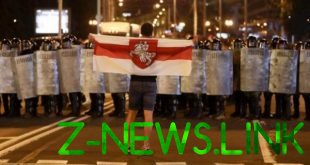
“A policy of establishing total state control over information”
In Russia recorded more than 438 thousand cases of interference in the freedom of the Internet. Report
In Russia in 2019 was recorded over 438 thousand cases of interference in the freedom of the Internet, the vast majority of which (more than 434 thousand) is due to a limitation of access to Internet sites and services and the ban on different grounds. This is stated in the joint report of the international human rights organization “Agora” and “Roskomsnab”.
The report States that the number of subjects in Russia, where users are faced with severe pressures in 2019 has increased to 43 (in 2018 were 41 entities). Most notably worsened the situation in the Arkhangelsk, Volgograd, Kaliningrad, Kurgan, Leningrad, Murmansk, Novosibirsk, Rostov, Samara, Saratov, Tambov regions, and Bashkortostan, Ingushetia, Karelia, Mordovia, North Ossetia and Udmurtia. In these regions the total number of incidents increased by four times compared to the year 2018; there were cases of violence against journalists or bloggers, or sentences to imprisonment for the Internet activity, the report said. The number of regions in the “green” zone for the fifth consecutive year is decreasing in 2019, that number dropped by almost a third compared to 2018 (from 14 to 10 subjects). Last year only Chukotka Autonomous Okrug, Jewish Autonomous oblast, Sakhalin and the Ryazan region, Kamchatka Krai, Republic of Khakassia, Tyva, Komi, Karachay-Cherkessia and Kalmykia remained relatively free.
The report States that in 2019 decreased the total number of prosecutions in connection with Internet-activity — from 384 to 200 incidents. The number of sentences to real deprivation of liberty decreased slightly from 45 to 38 cases. “In our opinion, this testifies to the differentiation of repression and law enforcement practices of adaptation to changing conditions,” — say in “Agora” and “the Roscomsvoboda”.
A key factor was the partial decriminalization of article 282 of the criminal code, with the result that it practically ceased to be applied, showing almost a ten-fold drop: if in 2018, according to statistics published by the Judicial Department under the Supreme court of the Russian Federation has a total of 519 was made of sentences (part 1 — 505 sentences), in the first half of the year 2019 — a total of 27 (for parts 1 — 21). One of the rare cases of application of article 282 of the criminal code of the Russian Federation in the past year was the case of the party of the summer protests in Moscow Vladislav Tit, which, as found by the court, called for the killings of children of security forces.
One of the key themes of 2019 was the contempt.
In part 3 of article 20.1 of the administrative code refers to the contempt of the state and its organs, society and the Constitution, however, the term “contempt of authority” is used even in official documents, for example, reports on the activities of Roskomnadzor. This provision is most often used to prosecute critics of the President (44 of the 78 known up to this point cases). In contrast to the disrespect for authority, the law on the responsibility for dissemination of knowingly false public interest information (parts 9-11 of article 13.15 of the administrative code), is still relatively rare. At present, there are about 13 such cases, and in some cases production was stopped by the court or the police.
The Russian authorities actively use existing mechanisms, for example, article 64 of the Federal law “On communication”, which provides for the suspension of the provision of communication services to legal entities and individuals. So, in the fall 2018 and spring 2019 in Ingushetia during the rallies of opponents of the transfer of part of the territory of Chechnya operators “the big three” once again cut off mobile Internet. In the summer of 2019 tactics of local satdanov was first tested in Moscow during the mass protests against the rejection of independent candidates for elections to the Moscow city Duma. Cut off mobile and Internet during the protests against the construction of a waste dump Cheese (Arkhangelsk oblast) and rallies for the cancellation of results of elections of the mayor of Ulan-Ude (Buryatia).
Last year continued the practice of using the act to lock in business conflicts — the demand for censorship presented to commercial structure. In the spring of 2019 Roskomnadzor, referring to the decision of the district court of Kazan has demanded major legal portal Pravo.ru to delete a translation of an article of the British newspaper the Times, on a court dispute between businessmen Rustem by Magdeeva, Dmitry Tsvetkov and Emil by Gainulina. Even more massive campaign of locks Roskomnadzor began in April 2019, demanding to remove nearly a thousand publications devoted to the relations of the President of the state Bank VTB Andrey Kostin and the employee VGTRK Naila Asker-zade. As it turned out, the decision was made back in the fall of 2018, the Arbitration court of St.-Petersburg and Leningrad region according to the VTB statement about protection of business reputation of the defendants in the case were not.
“We acknowledge that the overall policy of establishing total state control over information, users, and networks remains unchanged,” — writes the author of the report. In their view, the ultimate goal of power — “the establishment of a sovereign Internet like the Chinese-North Korean”. “The main intrigue is whether they will be able to implement the plan. While these initiatives or not even start (the Spring package on the storing and decoding of the traffic), or do not work (lock Telegram, ban cryptocurrencies) or easily circumvented (blocking numerous sites). As before, Internet users are pretty fast learner, they adapt to the environment, and technology is advancing, endlessly extending the front against the conservatives and complicating methods of preventing the free flow of information,” the report said.
© 2020, paradox. All rights reserved.





